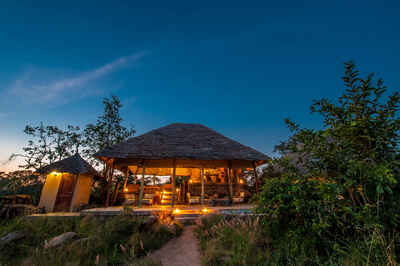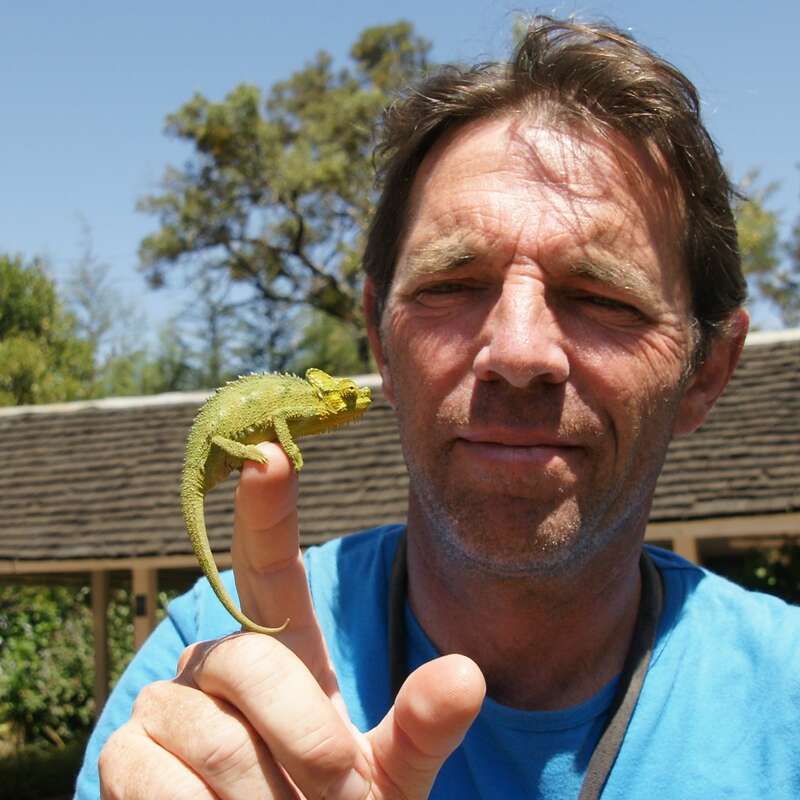About Nimali Tarangire
Nimali Tarangire is a permanent, tented camp that opened in 2015 on the north-eastern boundary of Tarangire ...
... National Park. Built on a private concession, it is located on the pretty banks of a seasonal river in the Randilen Wildlife Management Area.
This is a very stylish camp located in the peaceful Randilen WMA. The staff are helpful and welcoming, and the accommodation extremely polished. You certainly do not feel like you are missing out by staying on the outskirts of the national park, and the camp's peaceful concession offers a sense of exclusivity at a more affordable price.
Our view
This is a very stylish camp located in the peaceful Randilen WMA. The staff are helpful and welcoming, and the accommodation extremely polished. You certainly do not feel like you are missing out by staying on the outskirts of the national park, and the camp's peaceful concession offers a sense of exclusivity at a more affordable price.
Accommodation
10 rooms
Children
Fine for 10+
Open
All year
Activities

4WD Safari

Birdwatching

Cultural excursion

Guided walking safari

Hot air ballooning

Night drive

Private activities
Traveller reviews of Nimali Tarangire
1 real, un-edited reviews from Expert Africa's travellers.
Arrived 10 Nov 2019, 2 nights
"Small camp but big on service!"
Overall rating: Excellent
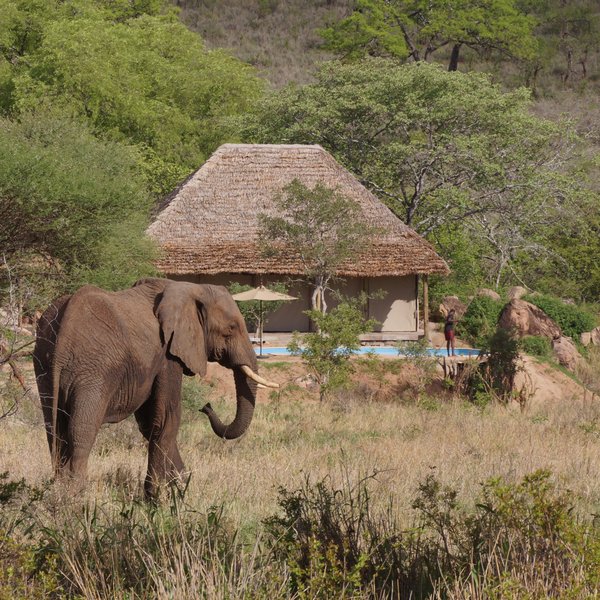
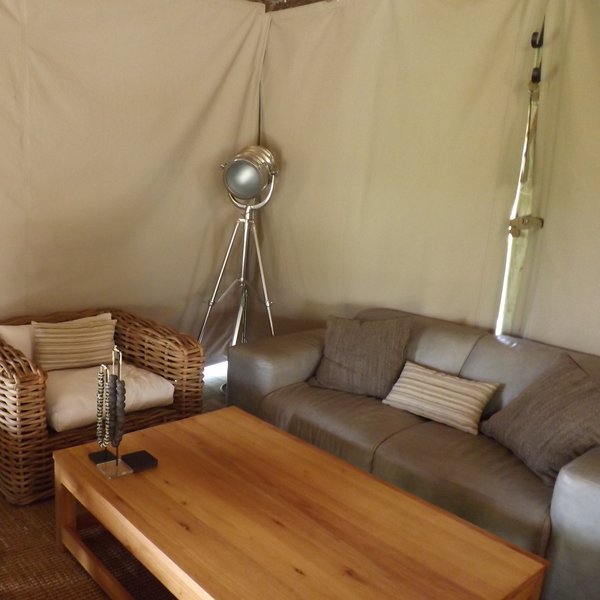
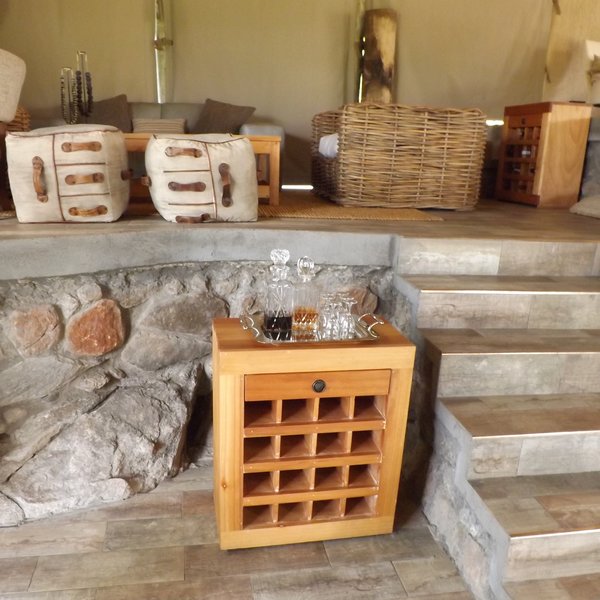
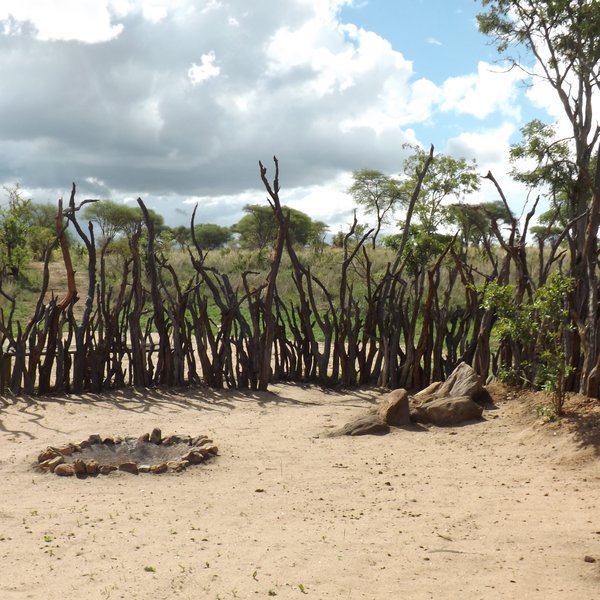
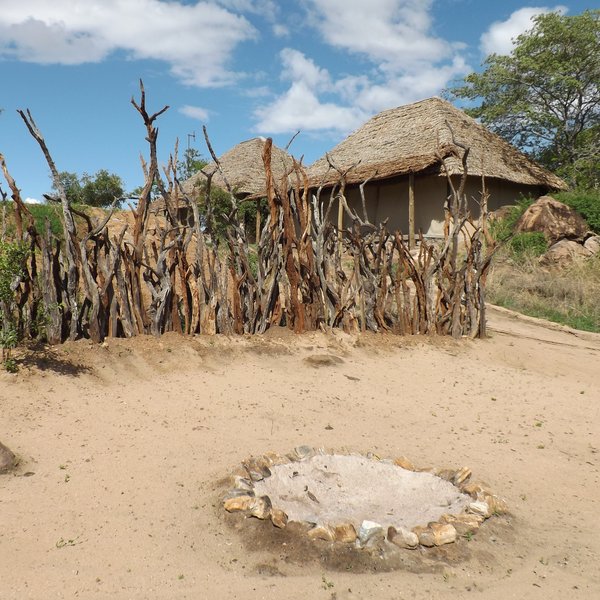
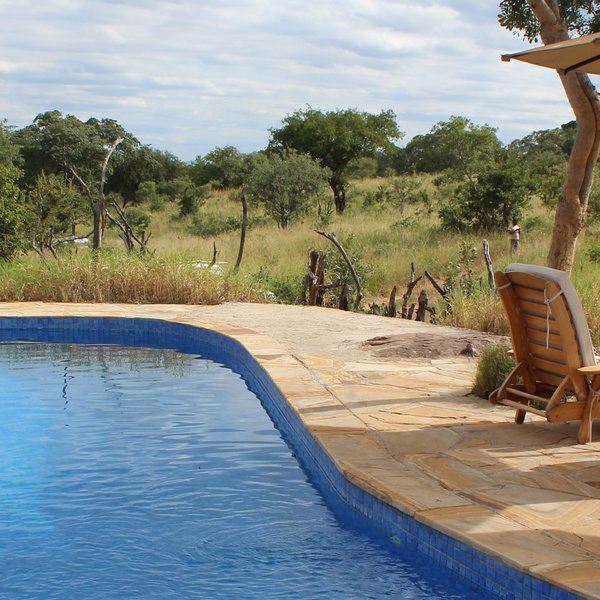
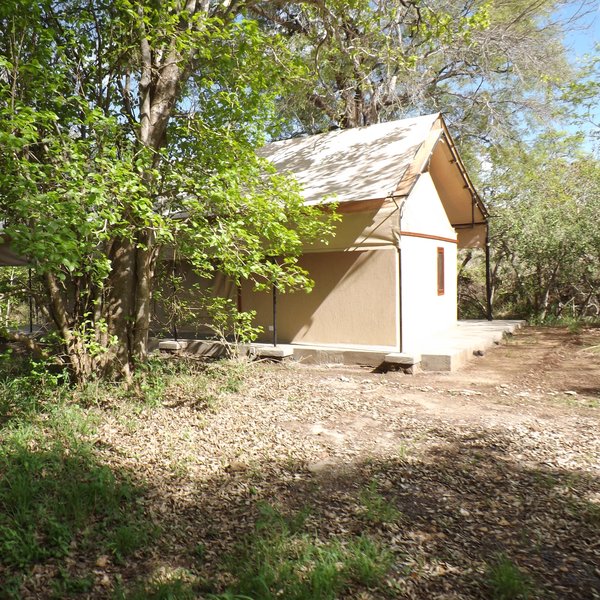
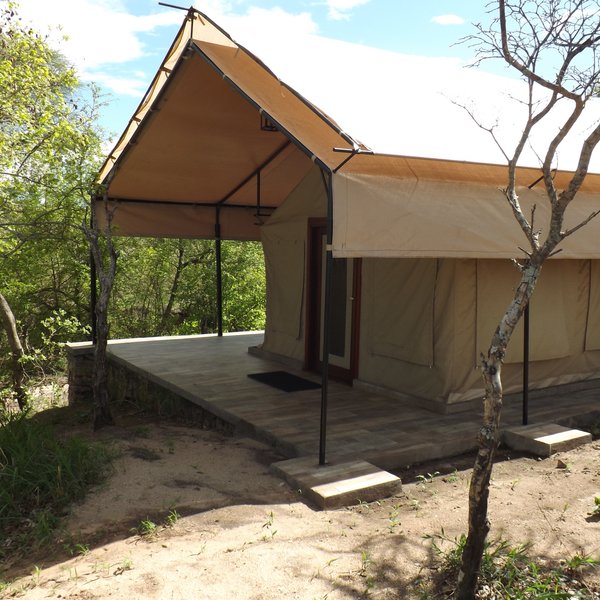
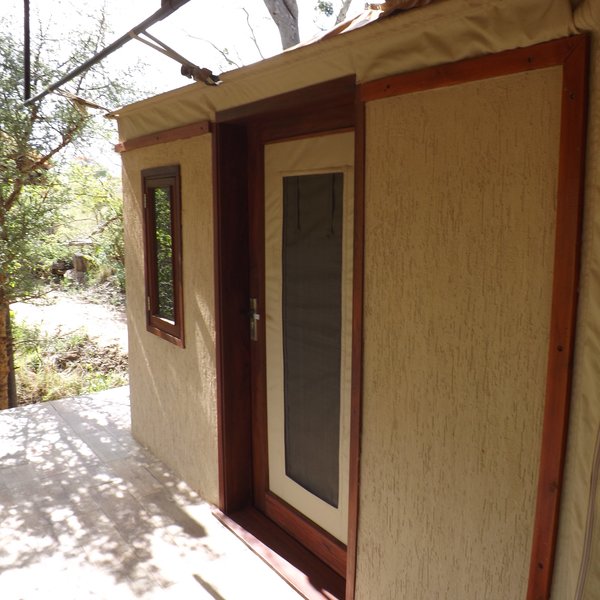
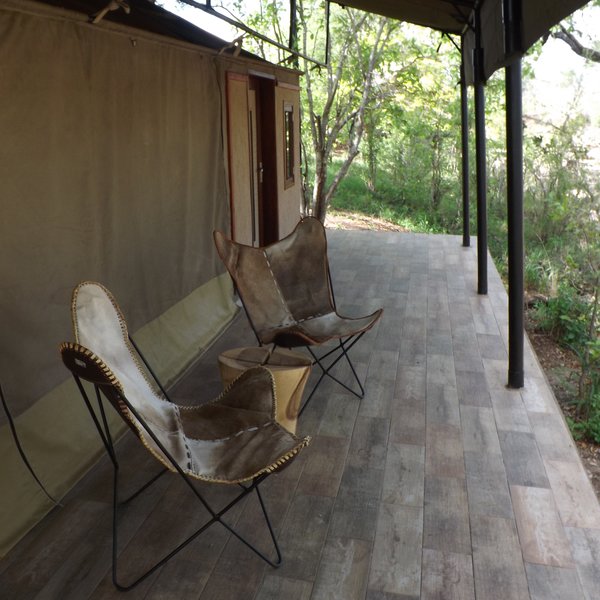
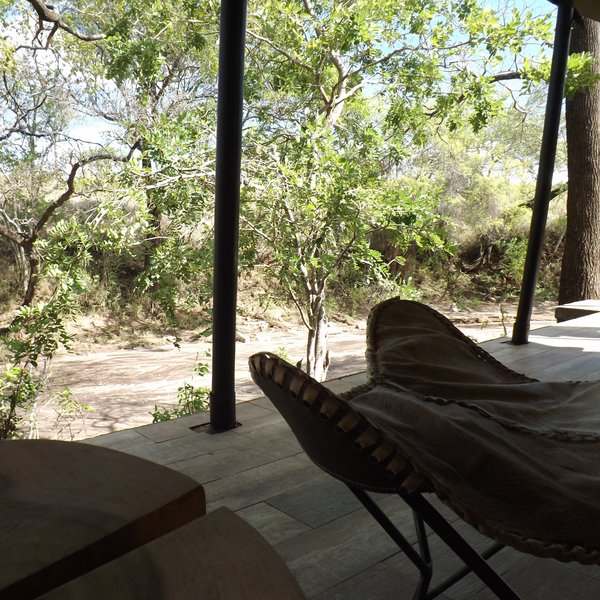
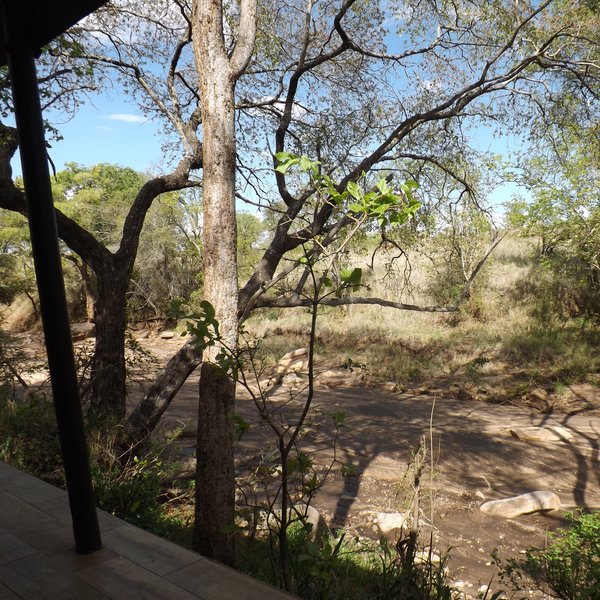
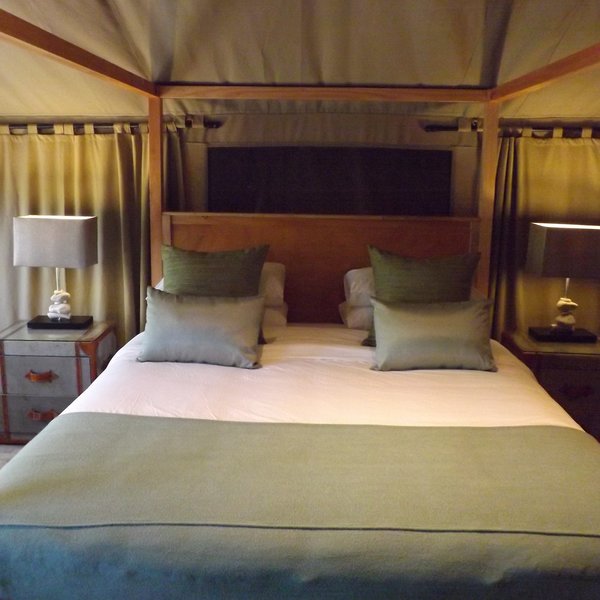
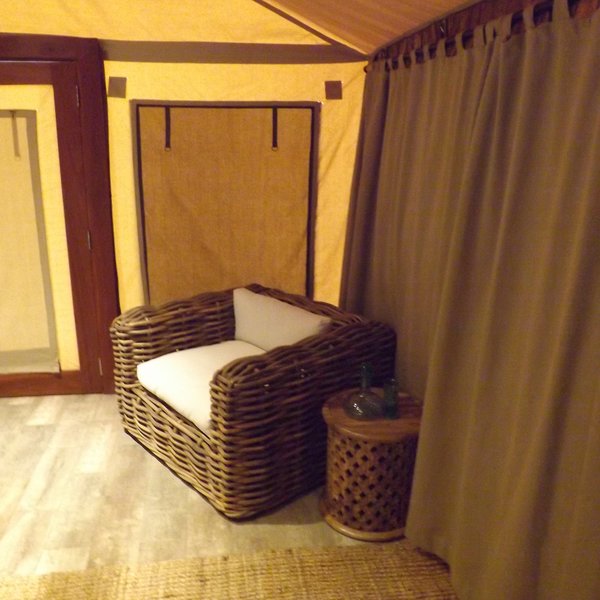
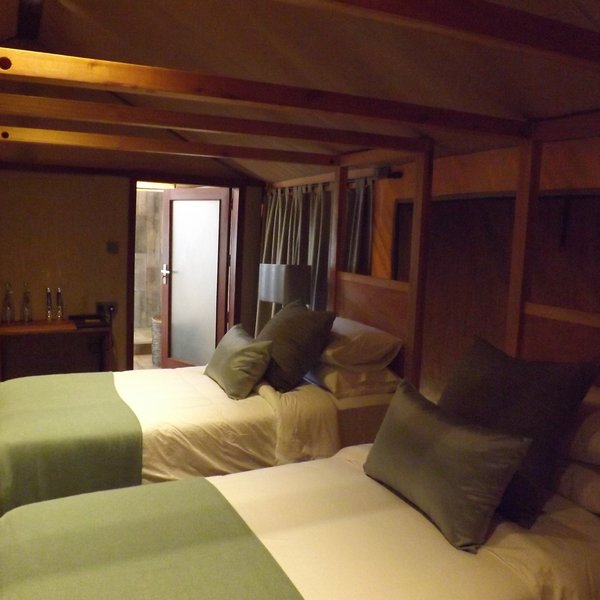
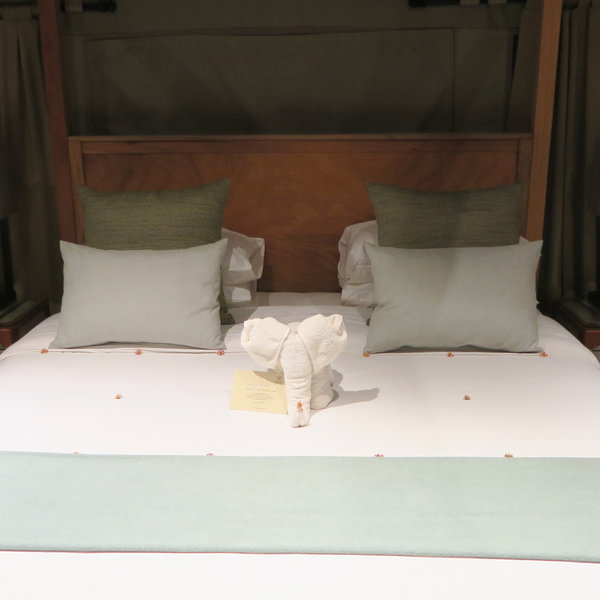
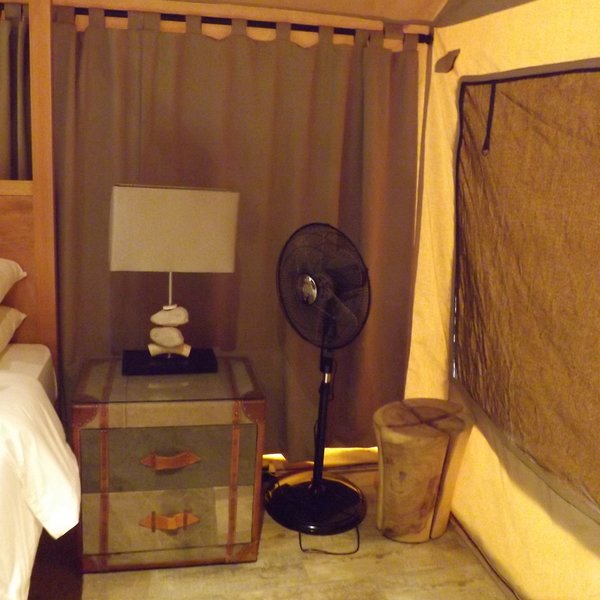
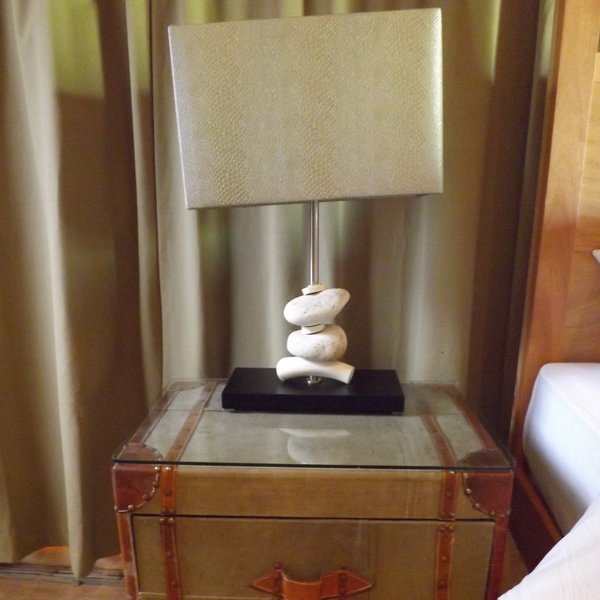
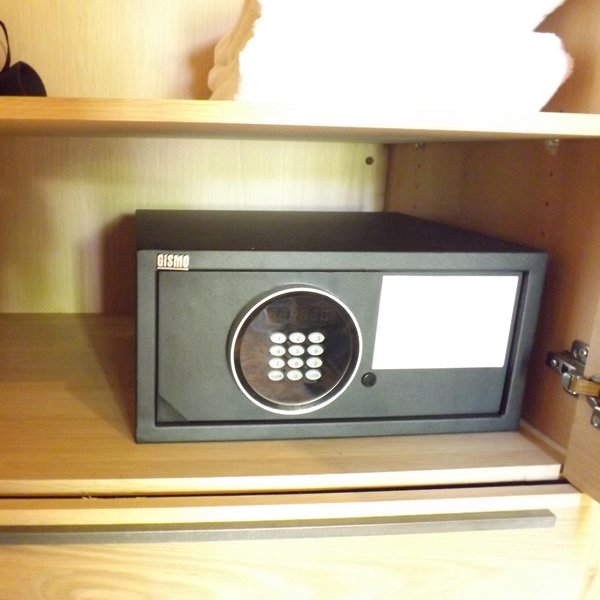
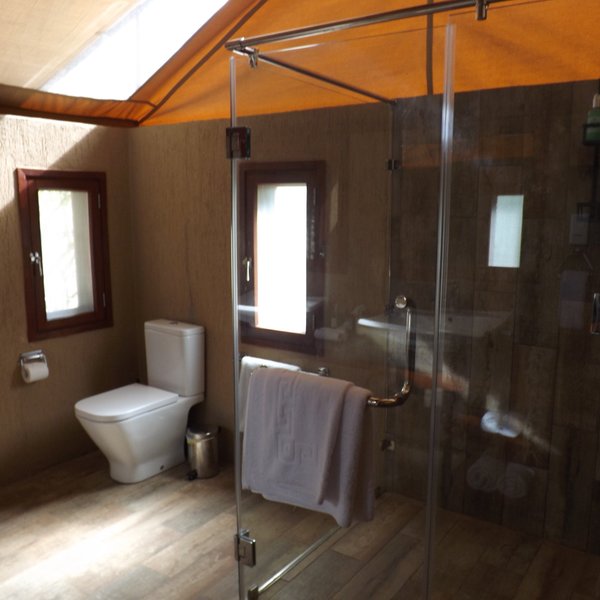
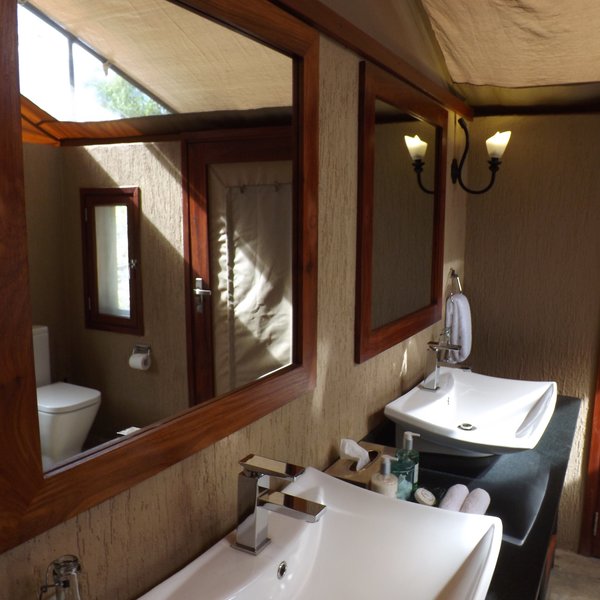
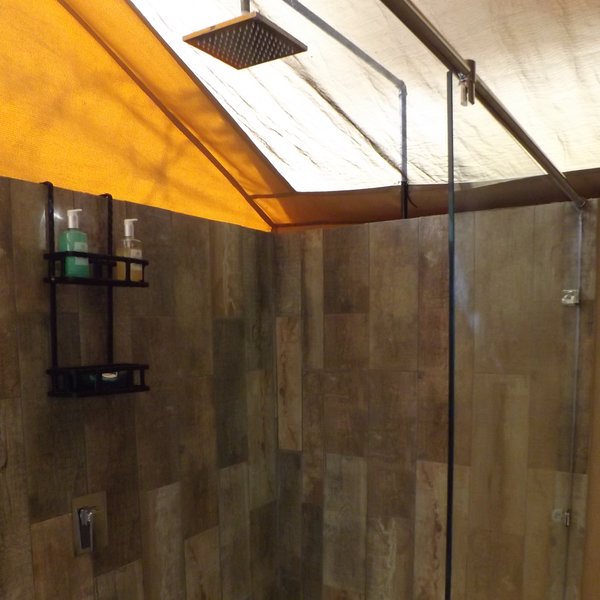
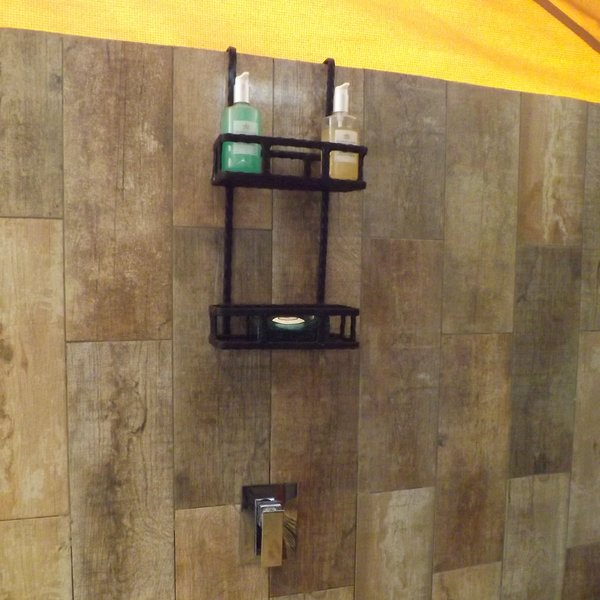
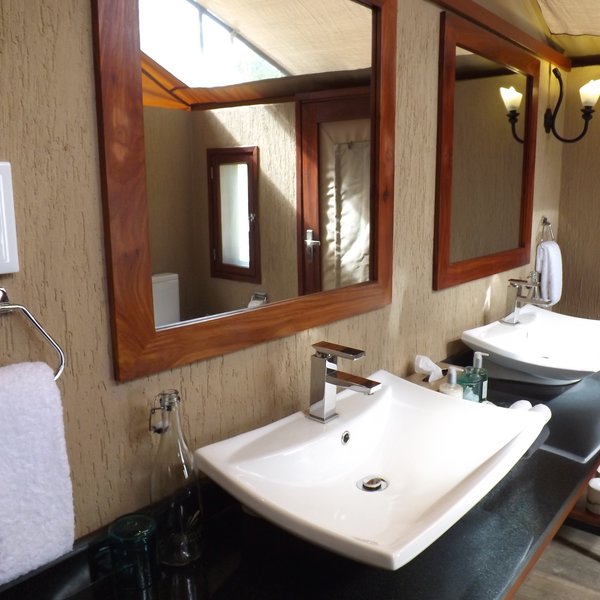
Expert Africa's gallery
When we travel we take lots of photos ourselves to give you a real and un-edited view of the safaris. See our 24 pictures of Nimali Tarangire to get the candid view.
View galleryNimali Tarangire: Our full report
Nimali Tarangire is a permanent, tented camp that opened in 2015 on the north-eastern boundary of Tarangire ...
... National Park. Built on a private concession, it is located on the pretty banks of a seasonal river in the Randilen Wildlife Management Area.
The main areas of the camp consist of a stone, canvas and burlap lounge area, with a wood-effect tiled floor and natural boulders breaking up the design. Built over different levels the dining area is on one level and on the other side is the lounge split over a few levels, creating separate quiet seating areas. Beautiful framed artwork featuring antique maps of Africa and various plant species are hung throughout. In front of the main area a small, pretty swimming pool overlooking a waterhole and the savannah beyond, is a major feature. It provides a nice setting for dinner, or for relaxing by in the afternoon on one of the loungers. There is also a large raised firepit boma, with built-in comfy seating used for sundowner drinks.
Directly in front of the raised boma is the latest addition the hide. Guests can walk down a few steps from the boma, along a corridor and into the covered hide. Windows look out from the hide onto the waterhole which is floodlit at night. On our recent visit we returned from an afternoon drive to find a group of elephants at the waterhole, so we immediately went down to the hide and got a close up view of these majestic animals drinking and playing, without them even knowing we were there.
The ten contemporary tented rooms are raised up on decking and can be arranged as king-sized doubles or twins. Two family tents consist of two en-suite rooms separated by a lounge area, offering large suites designed for families or friends travelling together. These two large suites have their own small plunge pools.
Inside, the rooms have wood-effect tiled floors and attractive and modern furnishings, with large, cushioned, wicker armchairs and cowskin-covered seats out on the deck. The beds have good quality linen, and an extra bed can easily be added to make them into triples (Rooms #1-3 only). The rooms are well equipped with thoughtful touches, such as the jar of homemade chocolate. Each tent is supplied with large, electronic safes (can fit a laptop), hair driers, bug spray, torches, umbrellas and fans. The long private decks are perfect for relaxing after a game drive or for sipping your morning coffee bought to your tent as a part of your morning wake-up call, with views over a seasonal riverbed.
The smartly designed bathrooms come with double wash basins and very large walk-in, rainfall plumbed showers. Solar-heated hot water is available at any time. Gilchrist & Soames bathroom amenities like liquid soap, body lotion, and bar soap are provided.
The camp is located on the north-eastern boundary of the Tarangire park ecosystem, in a picturesque private concession of baobabs and grasslands, interspersed with woodlands, with plentiful elephants always around the camp. We were really impressed with the amount of wildlife we saw in and around the camp, including a female leopard in the dry riverbed right outside of our tent. The Arusha road continues past Nimali's access road to Tarangire's Main Gate (roughly 20 minutes away), but the camp usually accesses the park via the Boundary Hill Gate. This is around a 45-60 minute drive (depending on what you spot) through the picturesque Wildlife Management Area, and so your game drive starts straight away.
In terms of activities, most guests stay at Nimali Tarangire during the course of a road safari and will do game drives with their own private driver-guide. However, the camp has an open-sided 4x4 safari vehicle for guests who fly in, and it is possible to arrange sundowner drives and night-drives (which must be prebooked and are an additional cost).
If you want a break from the vehicle, we are told that pottering along the very picturesque dry riverbed, with its huge boulders and tangles of branches makes for a pleasant excursion. You will need to take a guide from the camp. Stretching out for a few hours on a sun lounger by the pool, with elephants and plentiful birdlife to watch, would be a fine alternative to a game drive. Sundowners are enjoyed on a nearby hill away from camp with a stunning view of the surrounding area.
Activities
4WD Safari
Birdwatching
Cultural excursion
Guided walking safari
Hot air ballooning
Night drive
Private activities
Families & children
- Attitude towards children
- Children of all ages are welcome, although this camp has an adult atmosphere.
- Property’s age restrictions
- There is no age limit
- Special activities & services
- There is a children’s menu and special meal times can be arranged.
- Equipment
- Baby cots are available.
- Generally recommended for children
- We recommend Nimali Tarangire for children 10 years and older. It is too open and too wild.
- Notes
- The camp is not fenced and game wanders through day and night. Parents need to keep a strict eye on their children.
Food & drink
- Usual board basis
- Full Board
- Food quality
- Breakfast has both hot and cold options with eggs, bacon, and sausage available as well as pancakes, which is what the camp takes enormous pride in! A buffet is also available with cereal, yogurt, and bread options like croissants, sliced bread, and rolls. Bush breakfasts are also available on request.
Most of the time, guests are on full day game drives in the Park, and a box lunch is prepared in advance, which typically contains a meat option like seasoned chicken or roast beef as well as a starch such as pasta salad. Most come with fruit and a drink of your choice.
For dinner we enjoyed either vegetable samosas or tomato soup for starters. Main course was fillet of Nile Perch with lemon butter sauce served on a bed of beans, carrots and broccoli and rice on the side. The vegetarian option was a well seasoned stuffed aubergine. More complex special dietary requirements can be catered for with advance notice. - Dining style
- Individual Tables
- Dining locations
- Indoor and Outdoor Dining
- Drinks included
- All drinks are included except premium drinks.
Our travellers’ wildlife sightings from Nimali Tarangire
Since mid-2018, many of our travellers who stayed at Nimali Tarangire have kindly recorded their wildlife sightings and shared them with us. The results are below. Click an animal to see more, and here to see more on our methodology.

100% success

100% success

100% success

100% success

100% success

100% success

100% success

100% success

0% success

0% success

0% success

0% success

0% success

0% success

0% success

0% success
Getting there
- Location
- Tarangire National Park, Tanzania
- Ideal length of stay
- 2 - 3 nights
- Directions
- Nimali Tarangire is around a 2 hour drive from Arusha. The camp is located outside Tarangire National Park, in a wildlife management area, around a 20 minute drive to the Main Gate, or 40 minutes to the Boundary Hill Gate.
- Accessible by
- Fly-and-Transfer
Communications
- Power supply notes
- There is a backup generator. The power is on 24/7 and there are sockets for charging in the rooms.
- Communications
- WiFi is available throughout the camp, although this is weak in the bedrooms.
- TV & radio
- There is no TV at Nimali.
- Water supply
- Borehole
- Water supply notes
- Eco-friendly filtered, purified drinking water is provided to all guests.
Health & safety
- Malarial protection recommended
- Yes
- Medical care
- A first-aid kit is available. All staff get first-aid training from KK in Arusha. The nearest medical facilities are a clinic at Mto wa Mbu and the Fame Hospital in Karatu.
- Dangerous animals
- Security measures
- There are Maasai askaris around the camp at all times, and guests are escorted to and from their rooms after dark, using a torch. Radios are available and whistles are provided in the rooms.
- Fire safety
- There are fire extinguishers in the rooms and public areas.
Useful info
- Disabled access
- On Request
- Laundry facilities
- Laundry is included. It is machine-washed and tumble-dried, so all garments can be included.
- Money
- There are safes in all the rooms.
- Accepted payment on location
- On our last visit in 2023 credit cards were not accepted. Cash is available in most currencies.
Plan and book your trip with Expert Africa
All of our trips are tailor-made, so we'll always adapt them to suit you. Talk to an Expert and let us plan and arrange your perfect trip.

Talk to an Expert
Call or email us now! We’ll match you with the Specialist in our team who is best suited to help you. Then together we can start planning your trip.

Set up your itinerary
Based on our experience and your ideas, your specialist will create a detailed, costed itinerary. We’ll refine it together, until we have a trip that you’re perfectly happy with.

Prepare for your trip
The same Specialist will make the seamless arrangements for your trip, send you detailed travel documents, and be available to answer any questions before you depart.

Travel with peace of mind
After you set off, you’ll be cared for by our partners in Africa, most of whom have worked with Expert Africa for decades. And if you ever need us urgently, we’re available 24/7.

When you return
We love to learn about your trip, and so will always be grateful if you’ve the time to give feedback to your Specialist when you return.
Nimali Tarangire's location
Look closer at the environment and surroundings of Nimali Tarangire.
Excursions from Nimali Tarangire
Optional extra day-trips and excursions possible whilst you're staying at Nimali Tarangire. Talk to us: these are usually best arranged before you go.
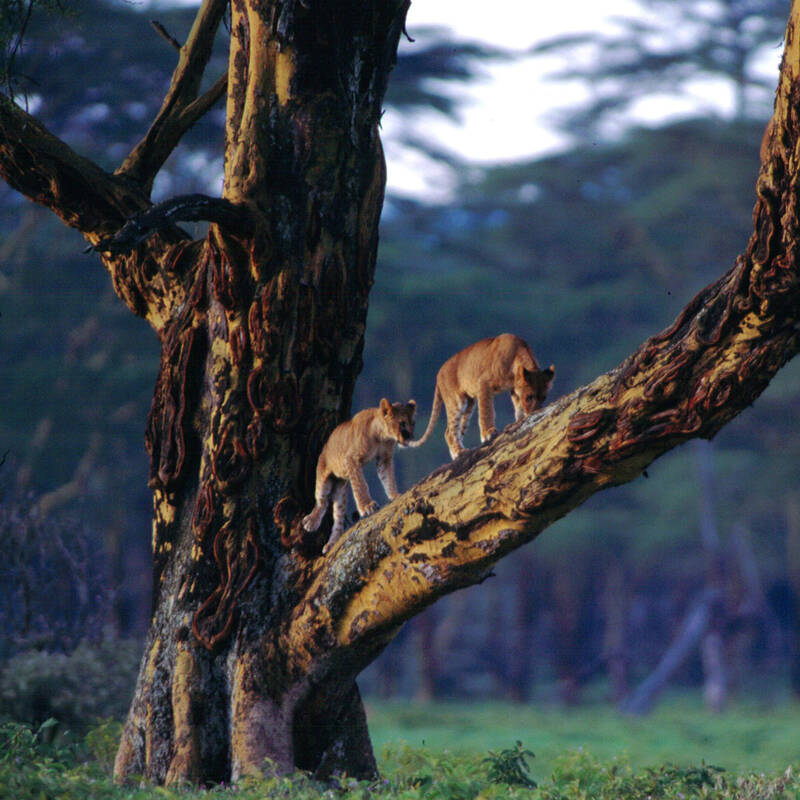
Lake Manyara Safari
Half-day or full-day
Set against the spectacular backdrop of the Rift Valley escarpment, Lake Manyara National Park makes a great safari destination. Here, along with elephant herds and plains game, you’ll find jungle-like forests that are home to blue monkeys, a soda lake tinged pink by flamingos and some of Tanzania’s best birding.
More about Lake Manyara Safari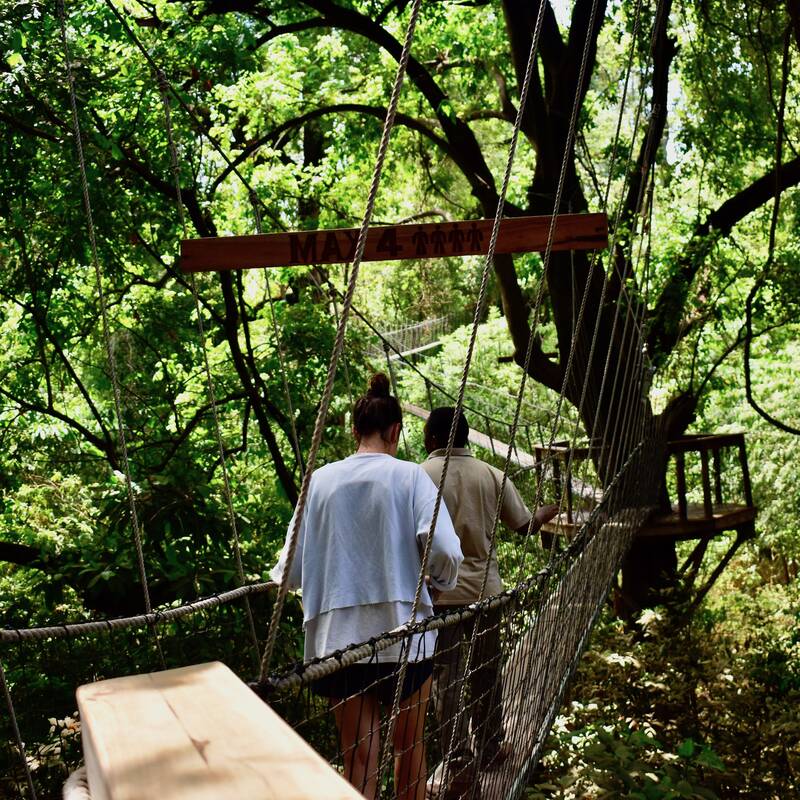
Lake Manyara Treetop Walkway
Usually one hour
Experience the forest of Lake Manyara National Park from a whole new perspective – high up in the trees. The first suspended walkway in Tanzania, it stretches underneath the canopy for 370m between the mahogany and fig trees, giving intrepid visitors a unique view of the surrounding flora and fauna.
More about Manyara Treetop WalkOther lodges in Tarangire National Park
Alternative places to stay in this same area.
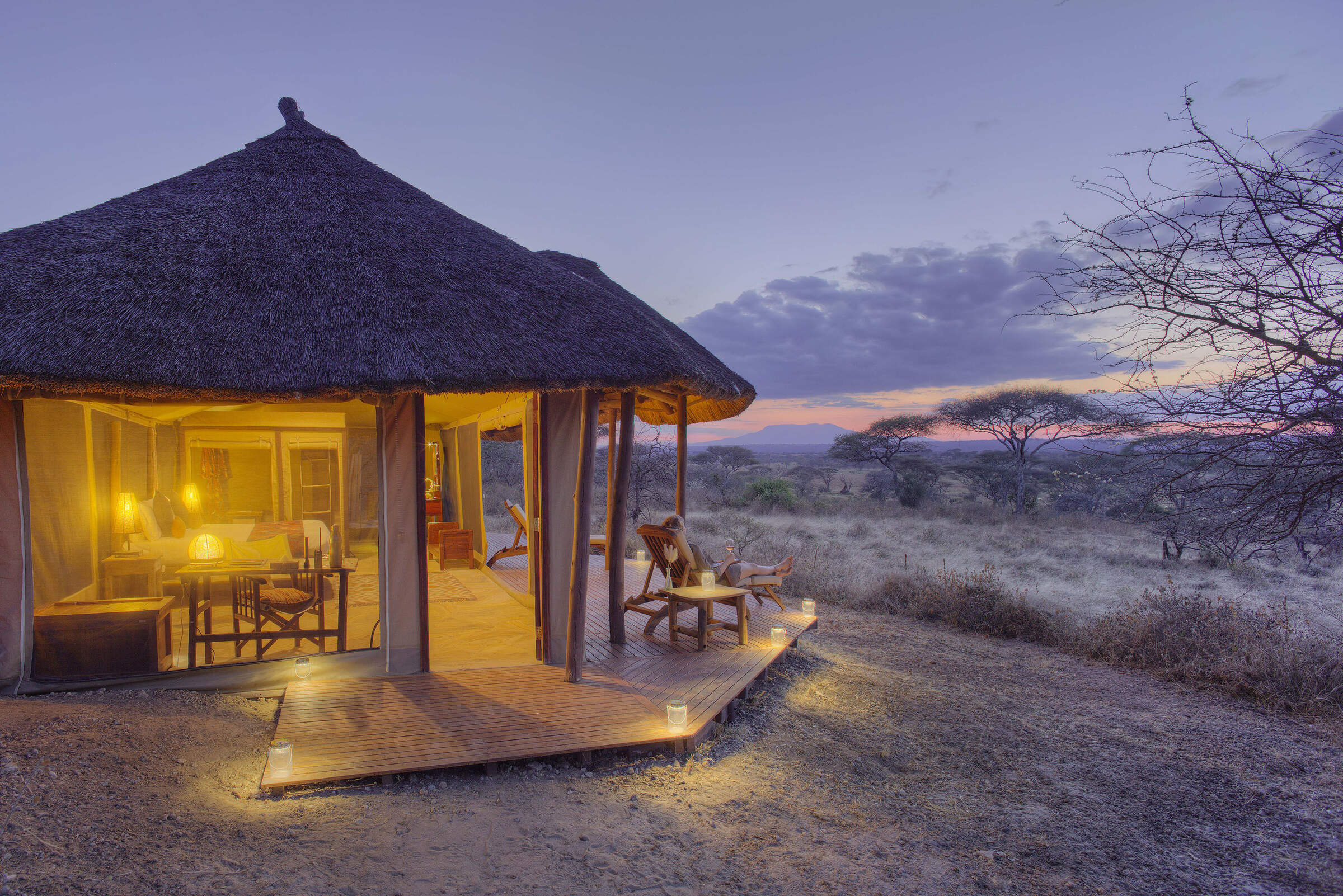
Oliver's Camp
Oliver's Camp is a small, intimate, luxury tented camp in a great location in northern Tanzania's Tarangire National Park.
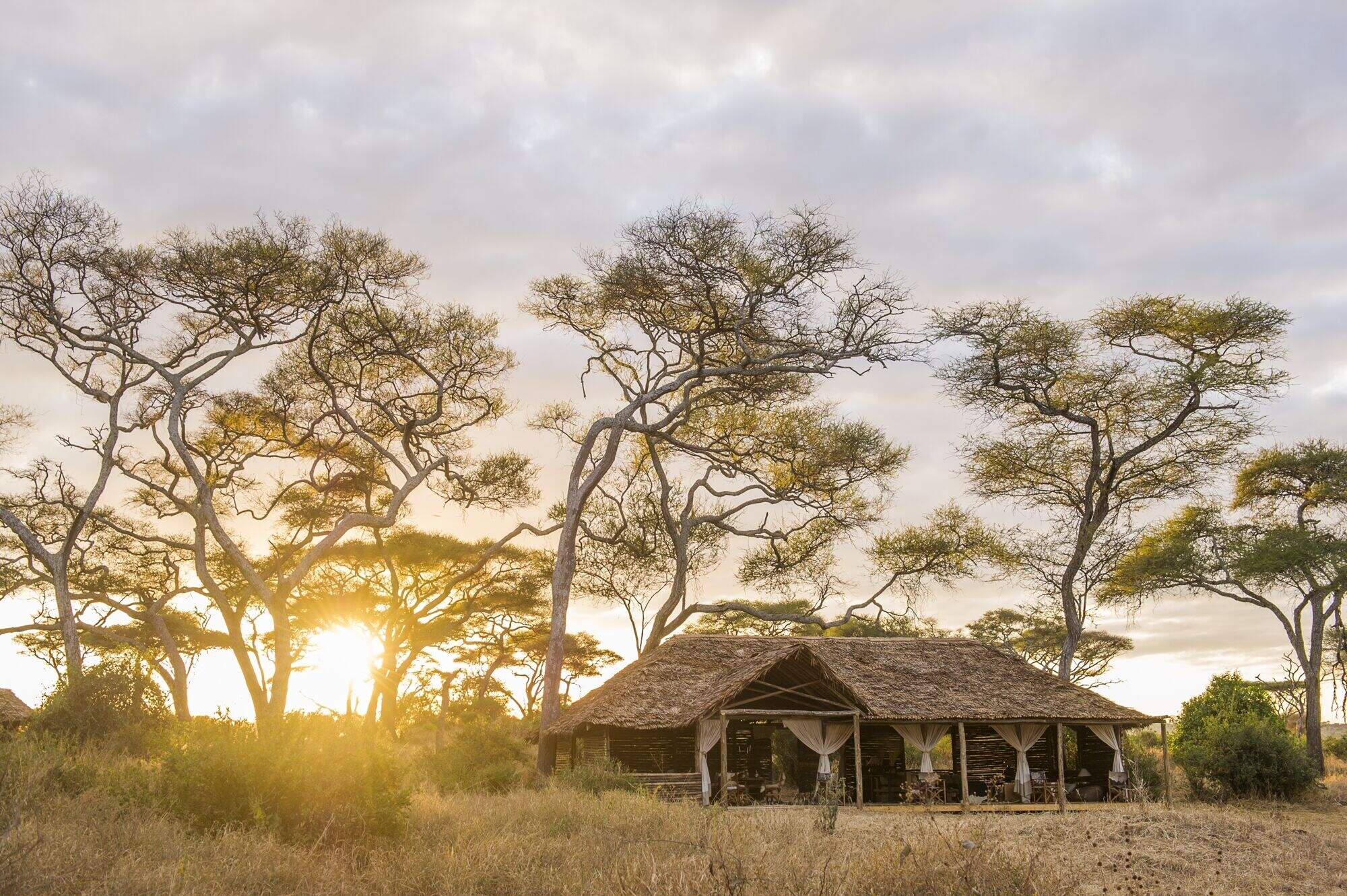
Kuro Tarangire
Kuro Tarangire is a stylish tented camp, located in a quiet and remote area deep in Tarangire National Park.
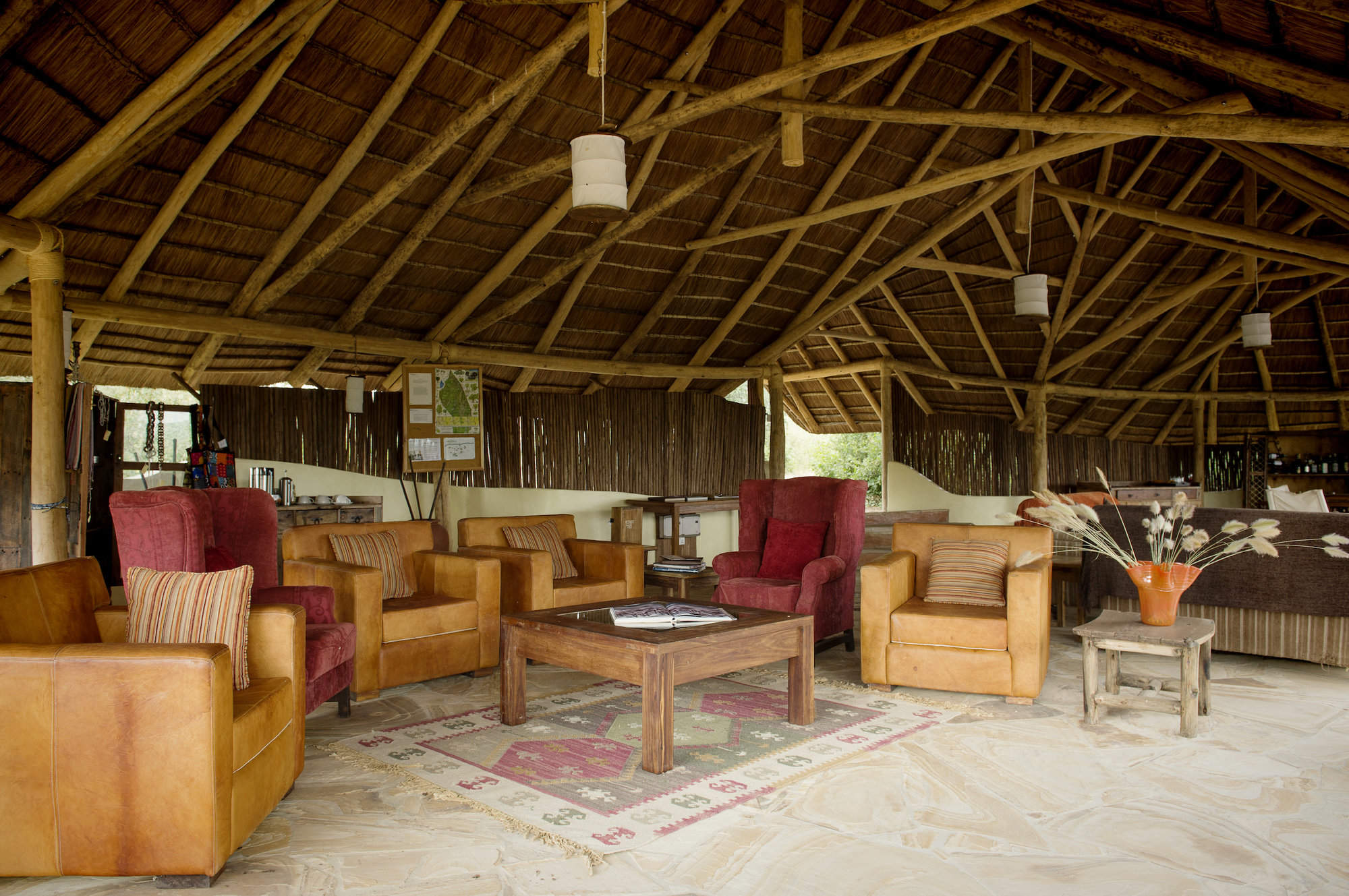
Little Oliver's
For a more private version of its sister property, Oliver’s Camp, Little Oliver’s offers high-quality guiding and tented rooms.
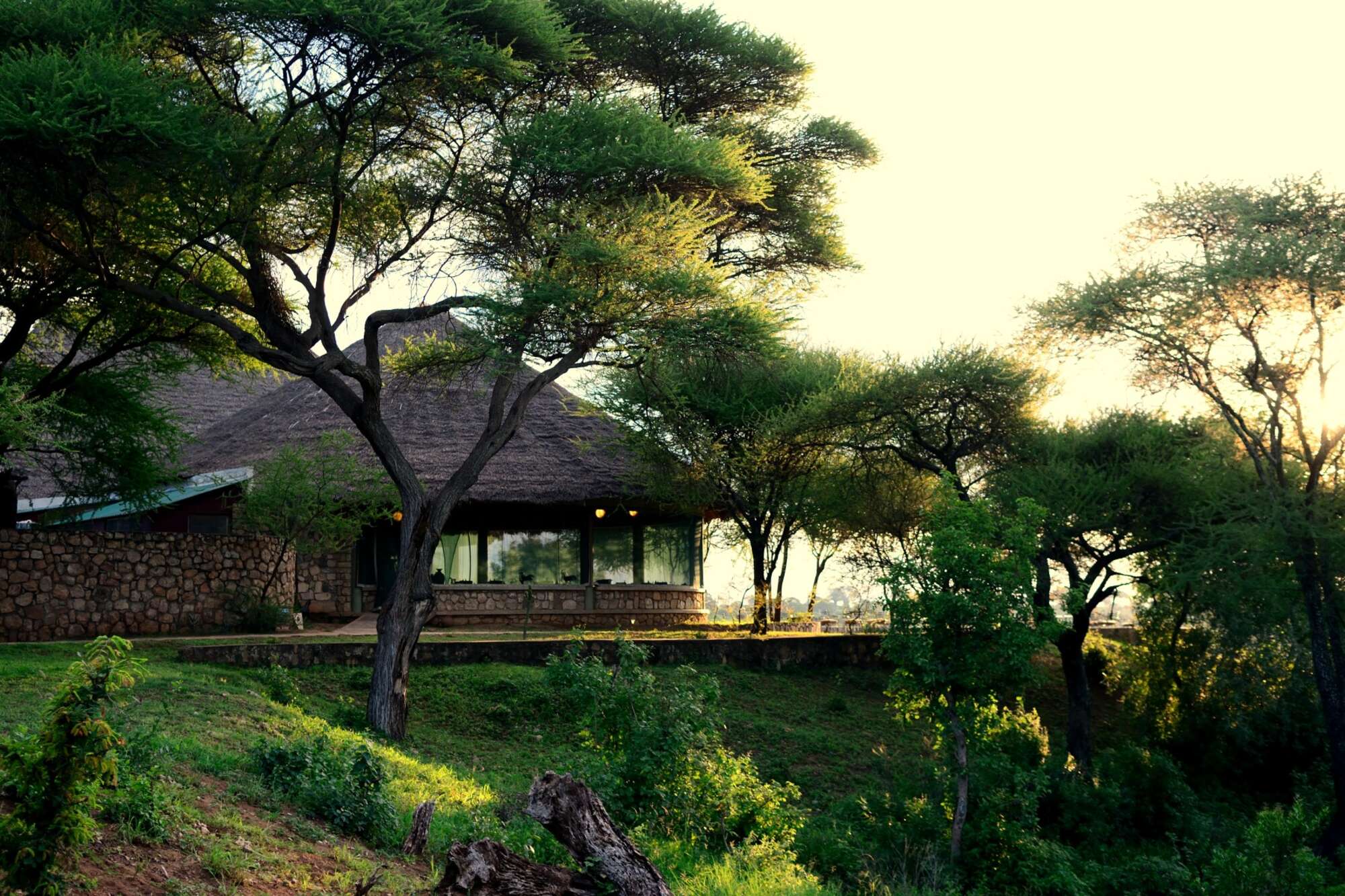
Tarangire Safari
Functional Tarangire Safari Lodge is one of Tarangire National Park's larger lodges, on a prime central site overlooking the river.
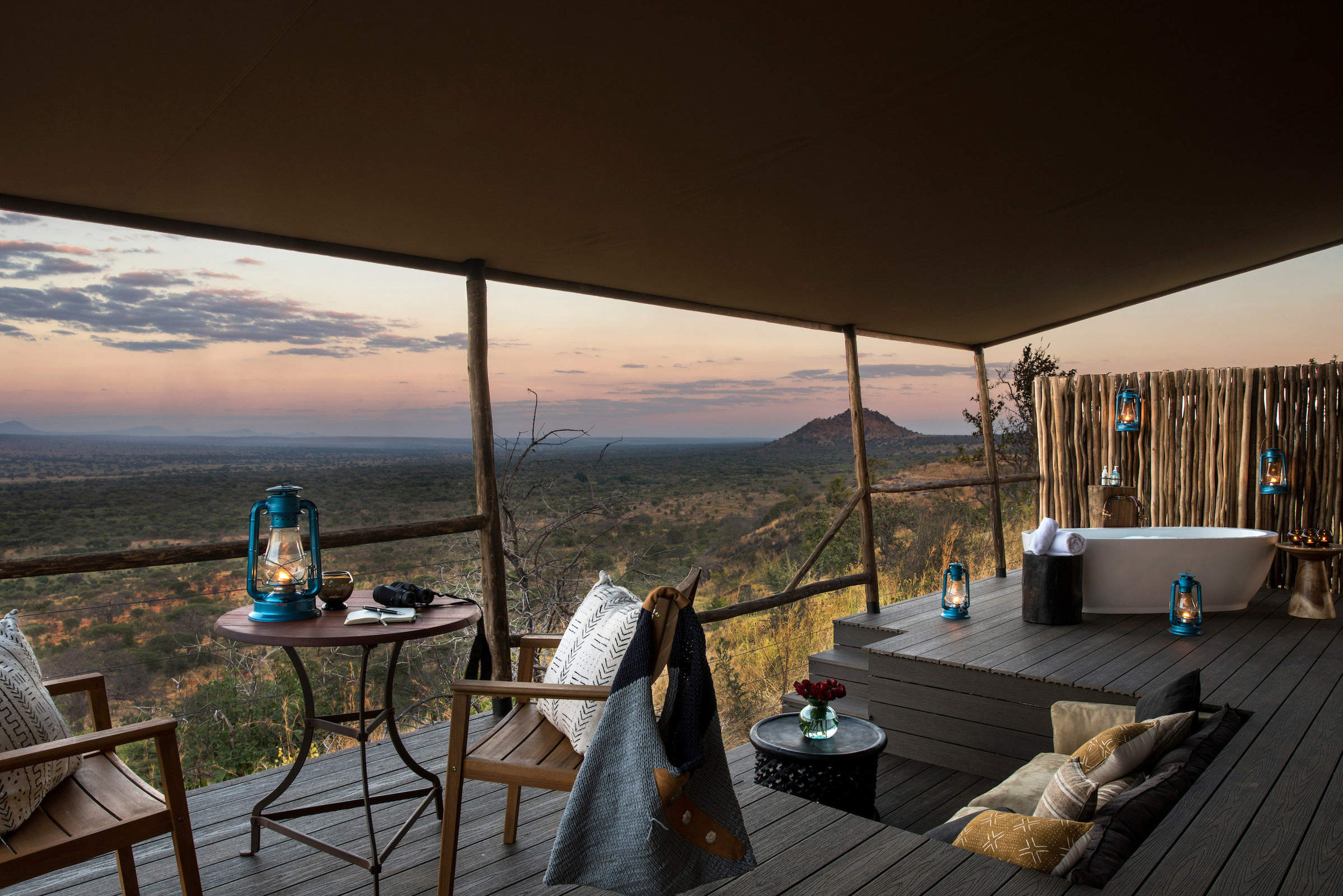
Lemala Mpingo Ridge
Lemala Mpingo Ridge is a stylish camp in Tarangire National Park, with a beautiful location and elevated views over the park.
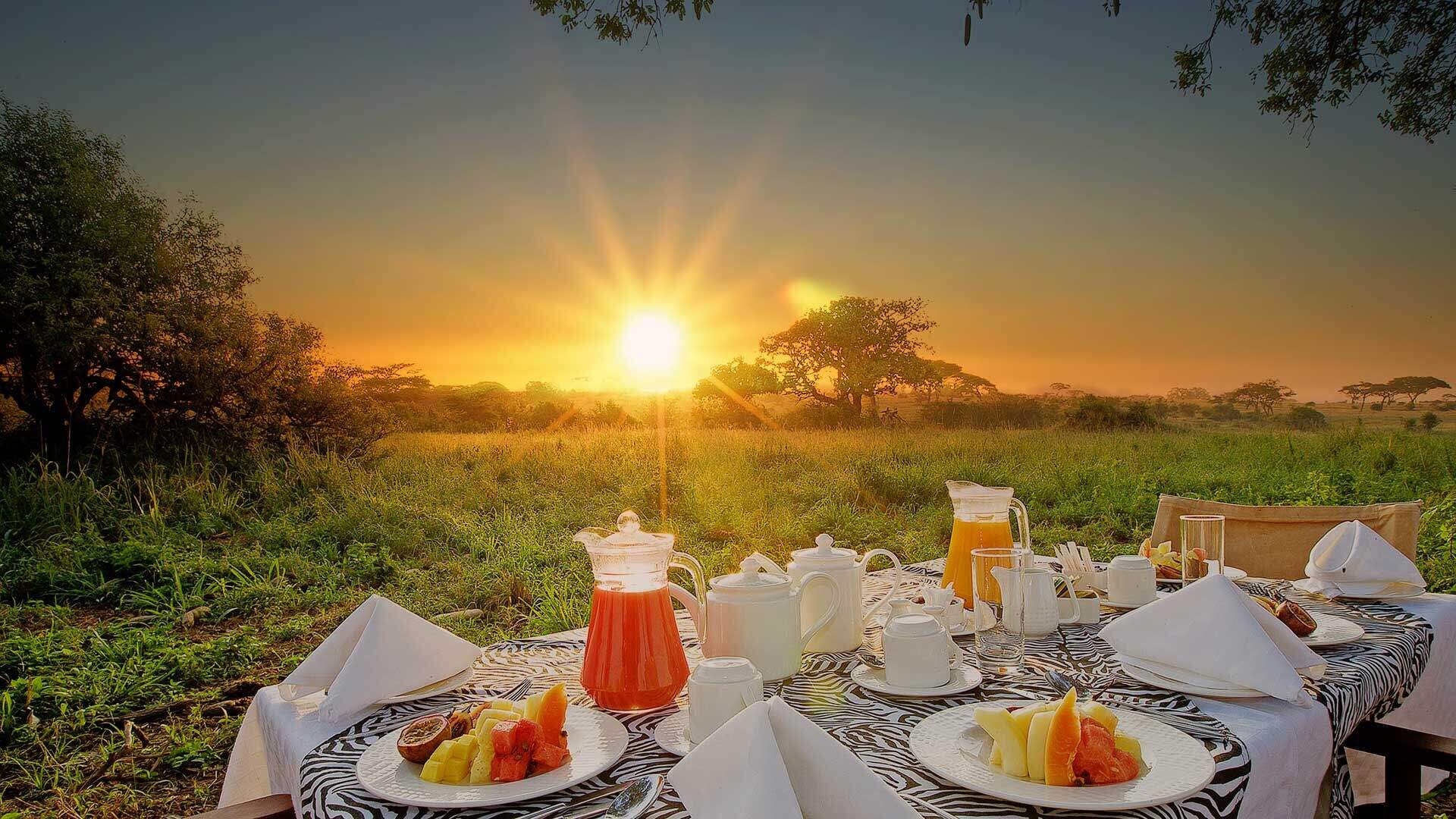
Tarangire Sopa Lodge
Tarangire Sopa Lodge is a large, comfortable, family-friendly hotel in Tarangire National Park, suitable for travellers on a budget.
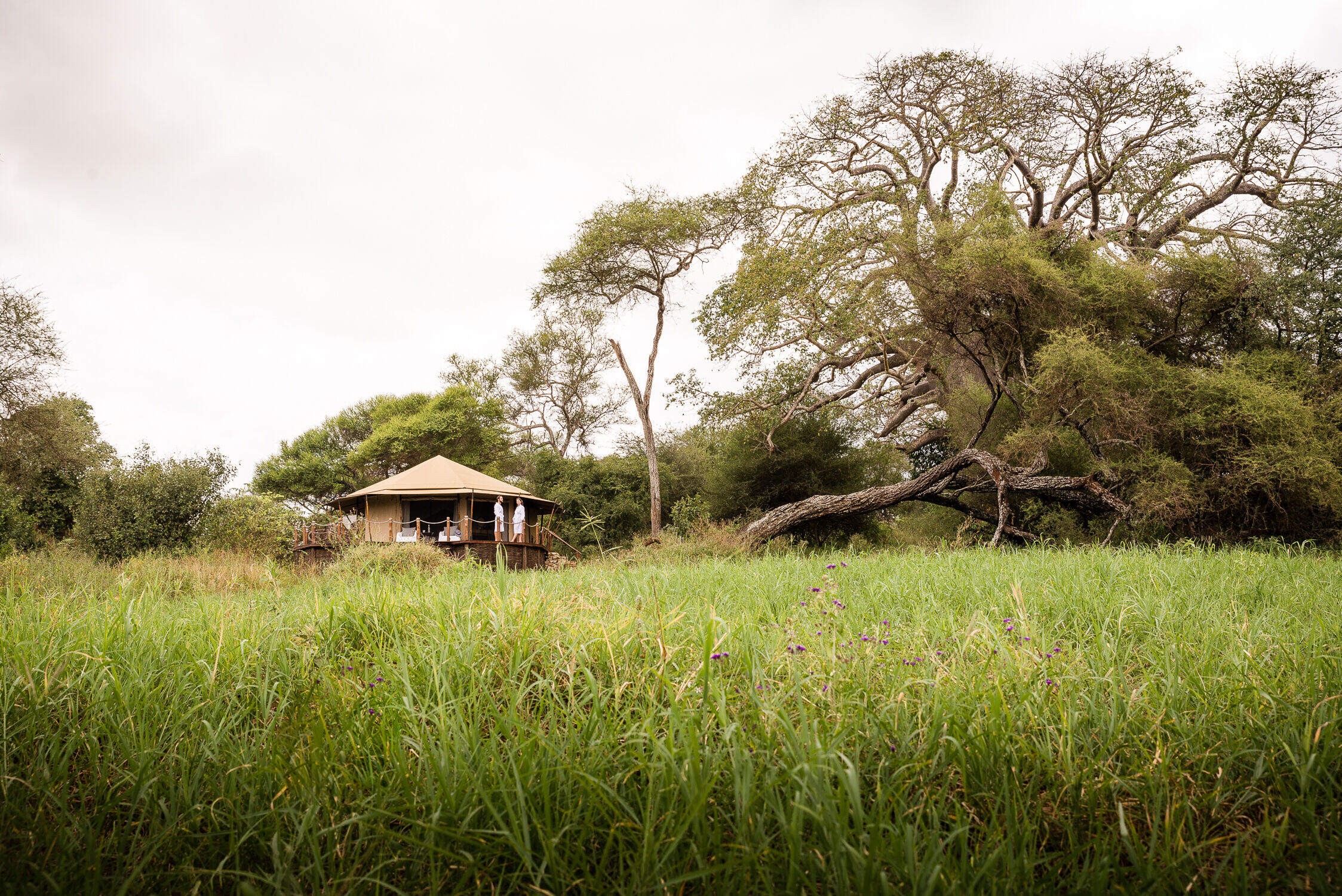
Swala Camp
Swala Camp is a stylish camp for exploring the southern Tarangire, either with a private driver-guide, or using the camp's vehicles and guides.
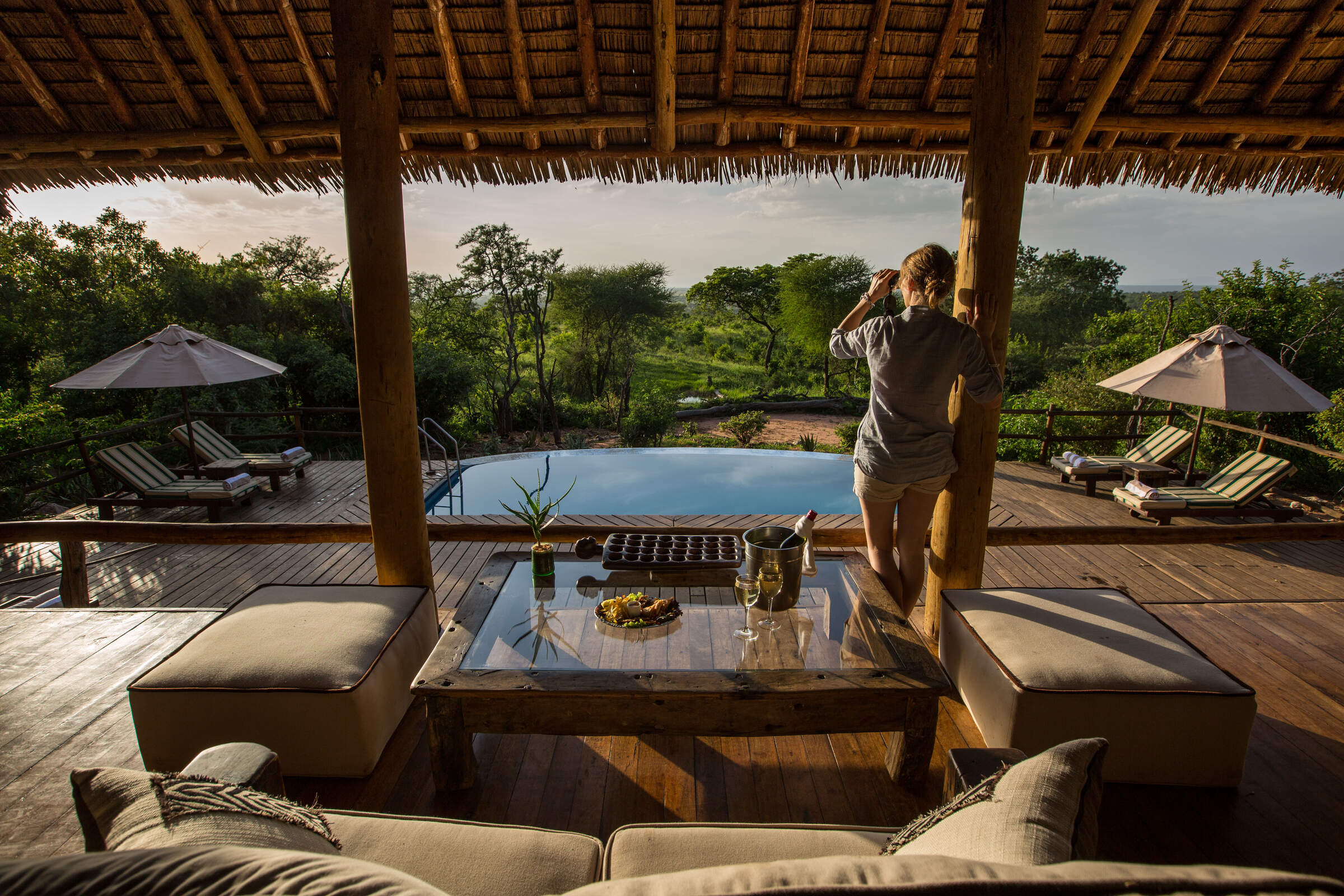
Tarangire Treetops
Tarangire Treetops is a lovely, high-quality lodge on the outskirts of Tarangire National Park, offering game drives, night drives and safari walks.
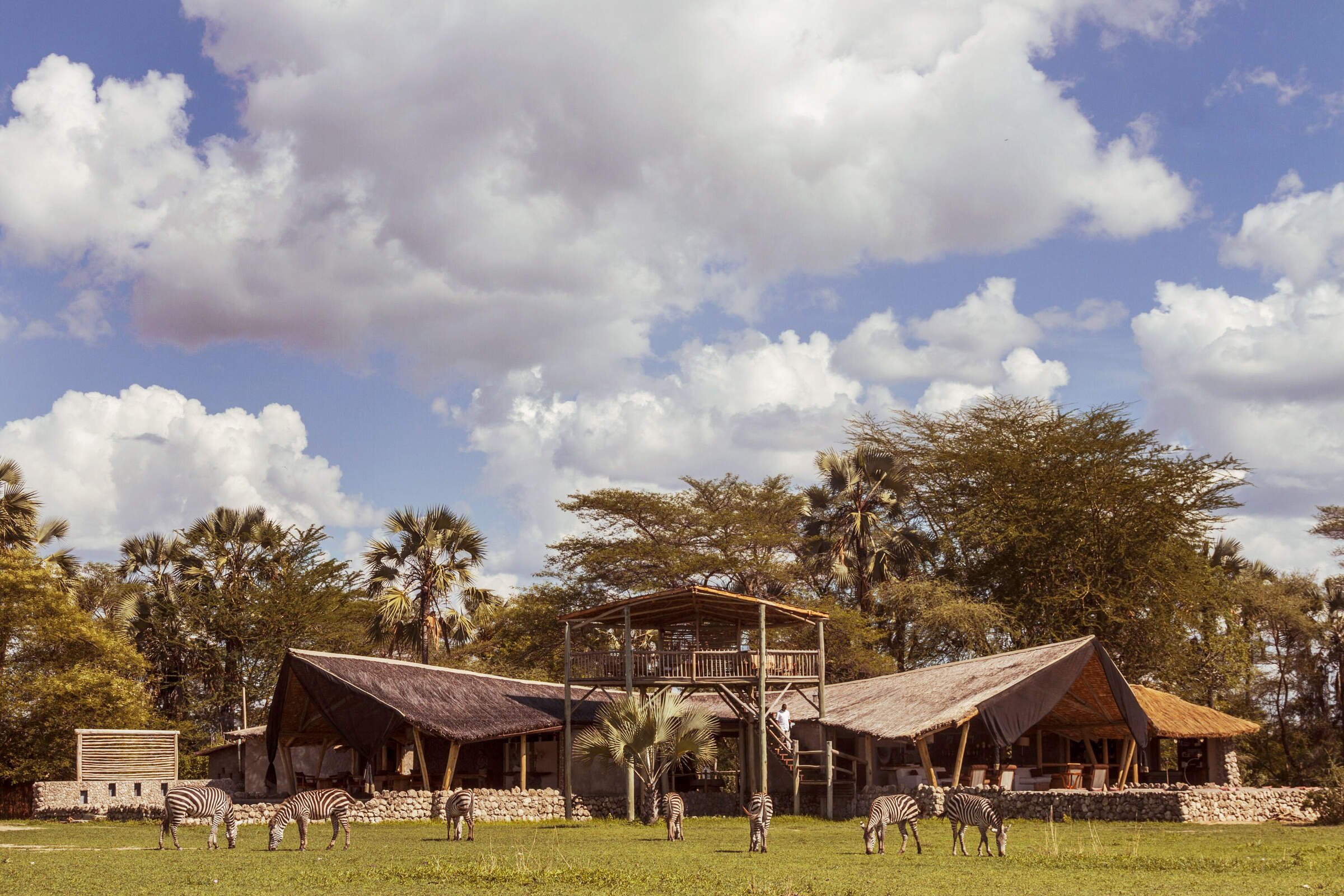
Chem Chem
Chem Chem is a luxury tented lodge on a private concession between Lake Manyara and Tarangire national parks.
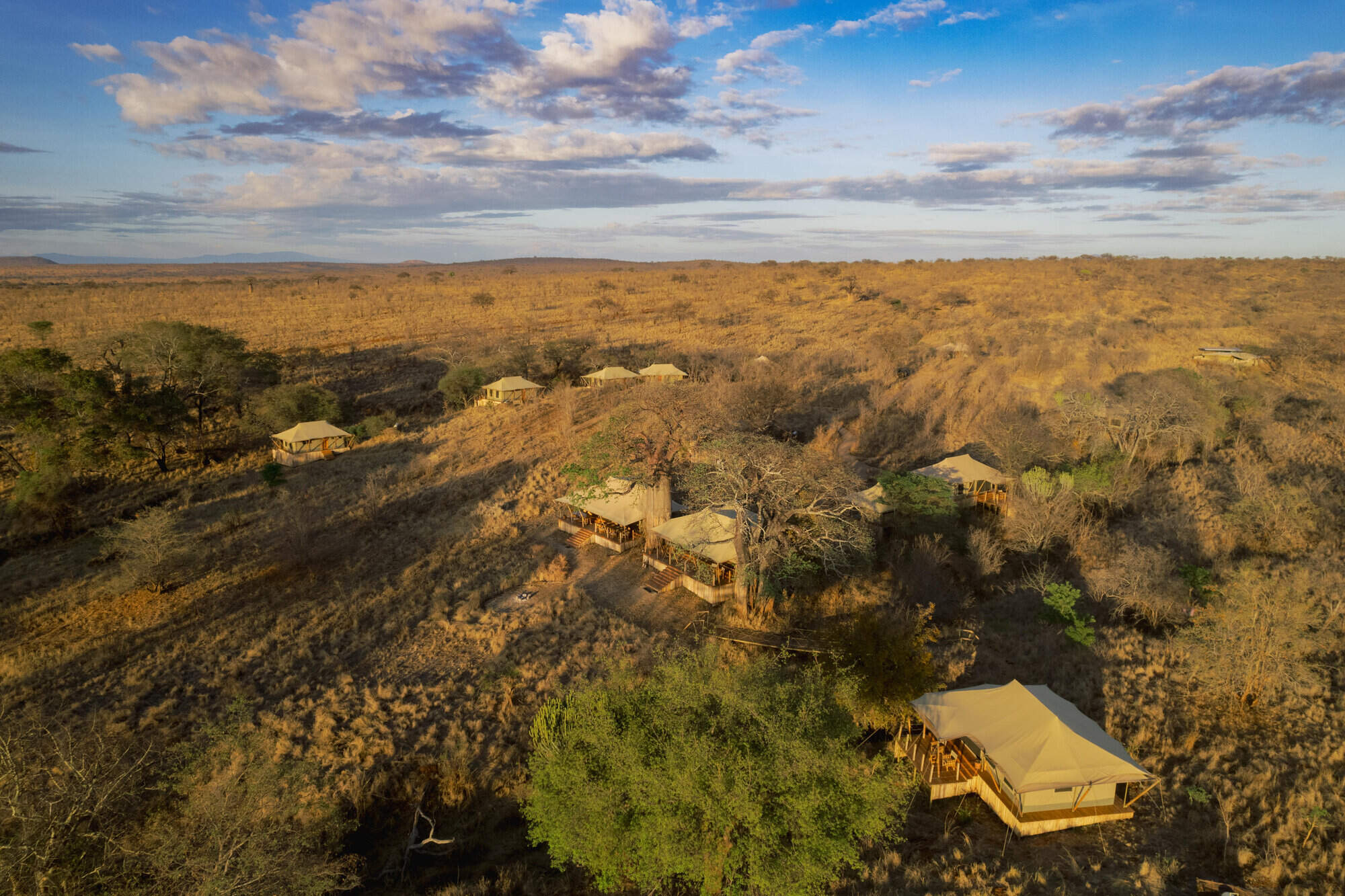
Olkeri Camp
Olkeri is a comfortable tented camp, located in the Randilen Wildlife Management area, bordering Tarangire National Park; ideal for those looking for pristine wilderness.
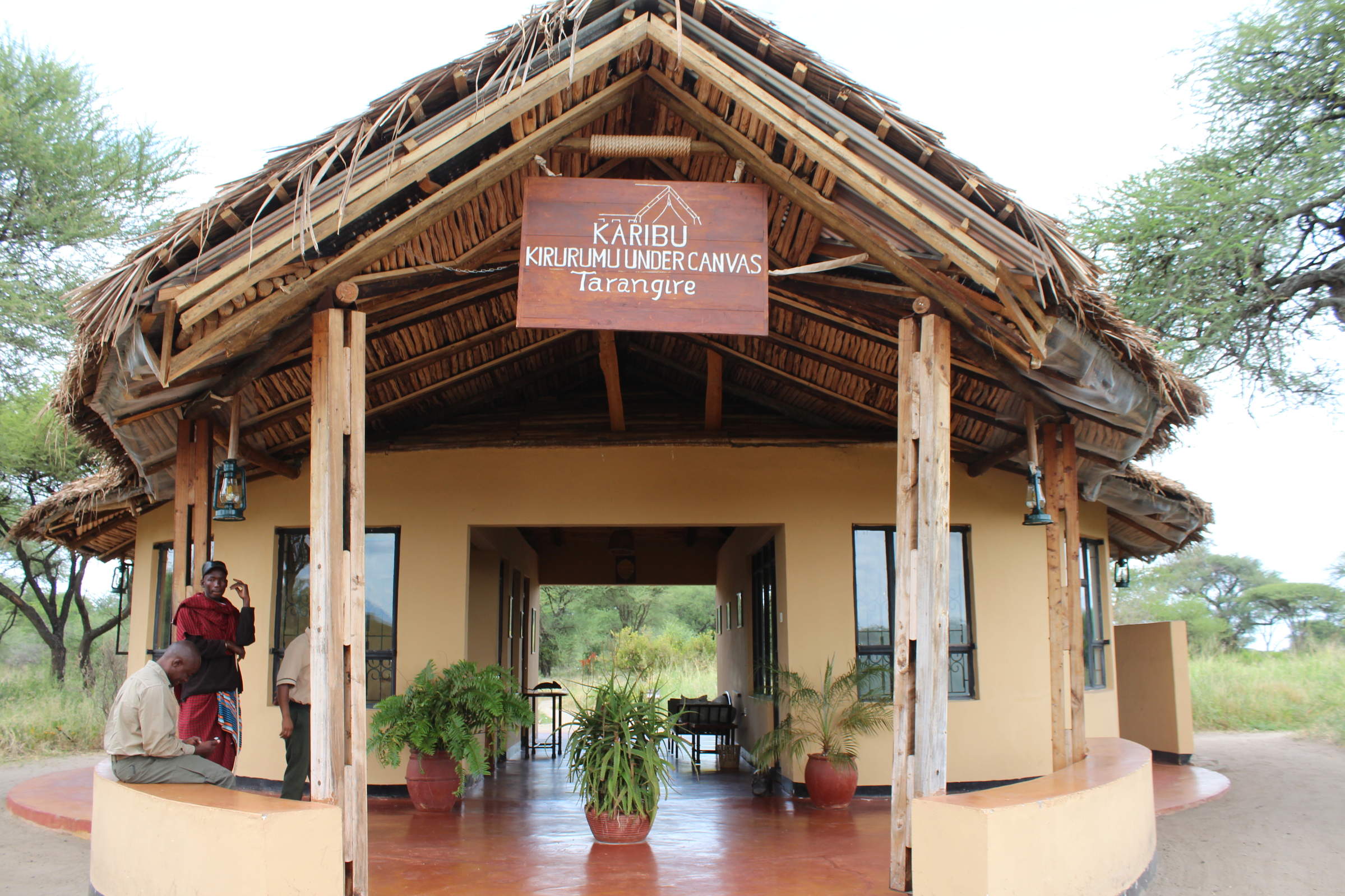
Kirurumu Tarangire
Kirurumu Tarangire Lodge is a simple, small, tented camp positioned just outside the northern boundary of Tarangire National Park.
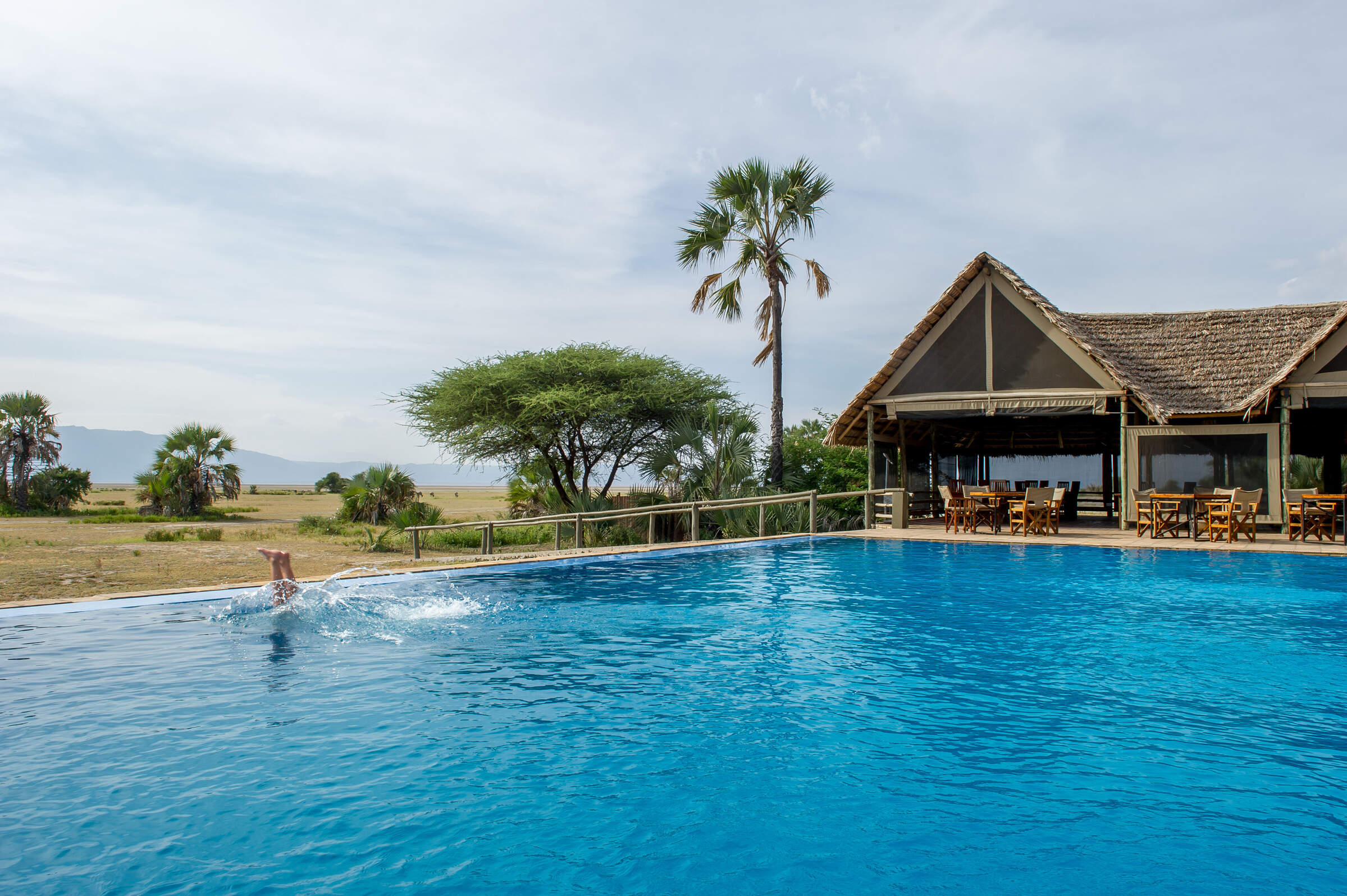
Maramboi Tented Camp
Maramboi Tented Camp is a family-friendly tented lodge located between Lake Manyara and Tarangire National Park.
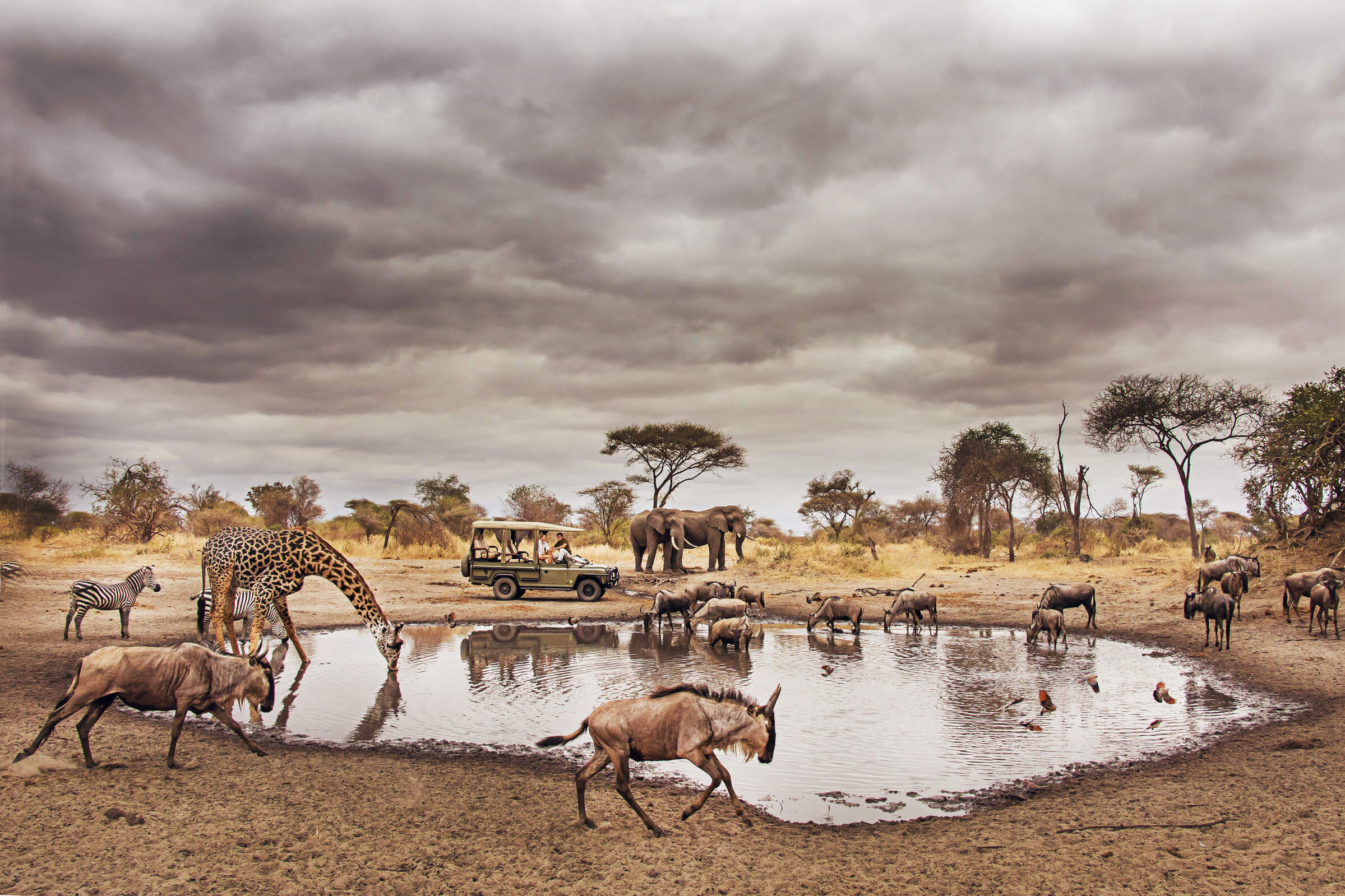
Forest Chem Chem
Located in the Chem Chem Concession and close to Tarangire National Park, Forest Chem Chem is a high-quality tented camp which is booked on an exclusive basis.
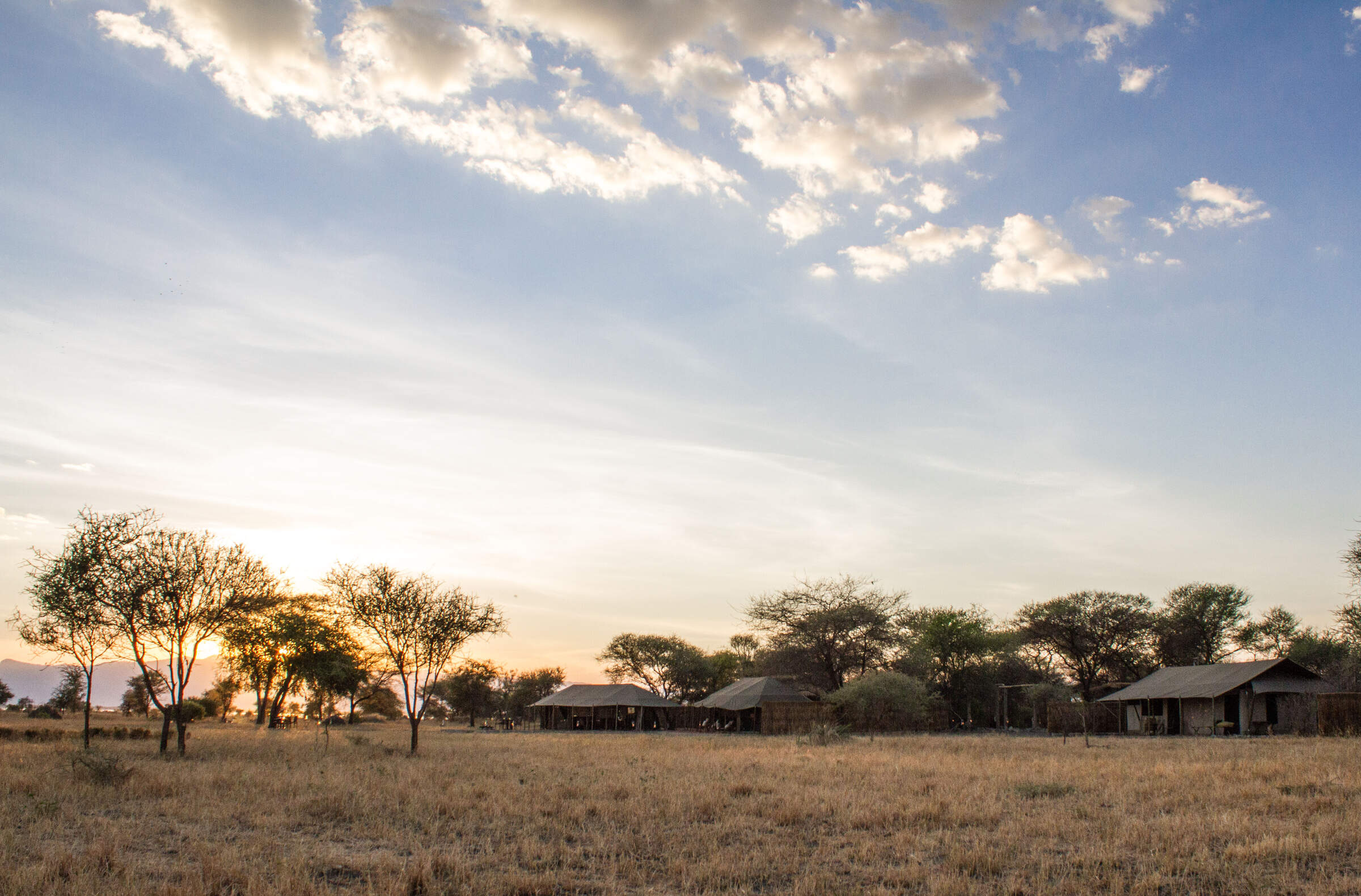
Little Chem Chem
Little Chem Chem is a stylish option near Tarangire National Park, offering real relaxation combined with a variety of safari activities.
When to go to Tarangire National Park
Our month by month guide: What it's like to visit Nimali Tarangire in Tarangire National Park
Jan
Feb
Mar
Apr
May
Jun
Jul
Aug
Sep
Oct
Nov
Dec
Tarangire National Park in January
January marks the start of the short dry season. The Tarangire River becomes a crucial water source, attracting diverse wildlife. Elephants, buffaloes, and zebras congregate around the river and swamps. The iconic baobab trees stand out against the landscape, providing food and shelter for animals. Birdwatching is excellent as resident birds display breeding plumage and migrant species are present.
The Silale and Gurusi swamps teem with hippos and crocodiles. While the southern areas of the park may still be wet, the northern regions offer great game viewing. The Matete Woodlands provide opportunities to spot leopards and rare fringe-eared oryx antelopes. January can offer great value for visitors, with quieter park conditions and variable weather.
- Variable weather, dry or rainy periods
- Good for birding, many migrant species present
- Elephant herds gather near Tarangire River
- Lush landscapes ideal for photography
- Quieter after early January rush
Our view
A good time to visit, with pros & cons
Weather in January
Tarangire National Park in February
February in Tarangire National Park is one of the hottest months, with temperatures reaching around 33°C/91°F. The short dry season continues, making it an excellent time for wildlife viewing. The Tarangire River and surrounding swamps become focal points for animal activity. Large herds of elephants, numbering over 3,000, are a major attraction.
The north offers impressive vegetation and birdlife, including large flocks of red-billed quelea birds and various raptors. Birdwatchers will enjoy the park's 550+ species, with northern hemisphere migrants joining resident birds. February is lovely for ballooning, offering unique aerial views of the park's diverse landscapes and wildlife during the cooler morning hours.
- Hot and dry weather prevails
- Large elephant herds visible near water sources
- Excellent time for game drives and safaris
- Baobab trees stand out in dry landscape
- Park less crowded, better wildlife viewing
Our view
A very good time to visit
Weather in February
Tarangire National Park in March
As March arrives in Tarangire, the long rains begin, transforming the landscape. This is an important time for the park's famous baobab trees, which store water in their trunks. While game viewing becomes more challenging due to dispersing wildlife, it's an excellent time for photography as the scenery turns lush and green.
The Tarangire ecosystem, including granitic ridges and river valleys, offers stunning views of the Great Rift Valley. Birdwatching remains rewarding, especially in the swampy floodplains and woodlands. March remains challenging for guided walking safaris, as the vegetation is high and thick.
- Hot with increasing humidity before rains
- Wildlife viewing varies as rains approach
- Quiet park with lower visitor numbers
- Migratory birds still present in good numbers
- Balloon safaris offer stunning aerial views
Our view
A good time to visit, with pros & cons
Weather in March
Tarangire National Park in April
April is the wettest month in Tarangire, with an average of 250mm of rain. The park's landscape is at its lushest, with flowering plants attracting insects and smaller animals. While big game viewing is more challenging due to dense vegetation, it's an excellent time for photographers to capture the vibrant scenery. The Tarangire River and swamps swell, creating picturesque scenes.
Birdwatching remains exceptional, with over 550 species present in the park. Visitor numbers are low, providing a more intimate safari experience.
- Heavy rains with impressive thunderstorms
- Some camps closed due to weather conditions
- Lowest rates and very few other tourists
- Lush green landscape, but wildlife dispersed
- Birdwatching excellent for resident species
Our view
This is not a great time to visit
Weather in April
Tarangire National Park in May
As May progresses in Tarangire, the long rains begin to taper off. The park's diverse habitats, from woodlands to savannahs, are lush and green. While wildlife viewing can still be challenging due to high grass, patient observers may spot leopards in the Matete Woodlands. The swamps, including Silale and Gurusi, are full of water, attracting numerous bird species.
May is an excellent time for photography, with dramatic skies and verdant landscapes. The Tarangire ecosystem is at its most vibrant, showcasing the park's stunning biodiversity. Visitor numbers remain low, offering peaceful game drives. Cultural visits to nearby Maasai communities provide insights into local traditions and lifestyles.
- Rains continue, creating dramatic skies
- Quiet time to visit, avoiding crowds
- Park lush and green with high grass
- Wildlife more dispersed, fewer sightings
- Affordable rates for budget-conscious visitors
Our view
This is not a great time to visit
Weather in May
Tarangire National Park in June
June marks the beginning of the dry season in Tarangire. As the landscape starts to dry, wildlife begins to congregate around permanent water sources. The famous Tarangire River becomes a hub of animal activity, attracting diverse species. Elephant herds become more visible as they move towards reliable water supplies.
June is an excellent time for birdwatching, with over 550 species present in the park. The Lemiyon Triangle in the north offers impressive vegetation and birdlife. As the grass starts to shorten, game viewing improves, especially along the Birungi Circuit. June is lovely for balloon safaris, providing breathtaking views of the awakening landscape and wildlife below.
- Weather transitions from wet to dry
- Wildlife starts concentrating near water
- Park still green with some high grasses
- Visitor numbers increasing gradually
- Good value with shoulder season prices
Our view
A good time to visit, with pros & cons
Weather in June
Tarangire National Park in July
July is a prime month for wildlife viewing in Tarangire. As the dry season progresses, large herds of elephants, buffaloes and zebras gather around the Tarangire River and swamps. The park's famous baobab trees stand out against the increasingly arid landscape. Game drives along the Birungi Circuit offer excellent opportunities to spot lesser kudu and massive elands.
Birdwatching remains rewarding, especially around the park's swamps and woodlands. The Matete Woodlands provide good chances to see leopards and rare fringe-eared oryx antelopes. July is perfect for photography, with clear skies and animals congregating at water sources. Guided nature walks provide intimate encounters with the park's flora and fauna. Sundowner game drives offer magical experiences as the African sun sets over the savannah.
- Dry season begins, excellent wildlife viewing
- Large elephant herds visible near river
- Popular time with higher visitor numbers
- Peak prices due to optimal conditions
- Guided walks offer intimate wildlife experiences
Our view
Fantastic: the very best time to visit
Weather in July
Tarangire National Park in August
August in Tarangire offers exceptional wildlife viewing opportunities. The dry season is in full swing, concentrating animals around the Tarangire River and remaining water sources. Large elephant herds, sometimes numbering in the hundreds, are a common sight. The park's swamps, including Silale and Gurusi, attract diverse wildlife.
Birdwatching is excellent, with many species gathering around water bodies. The iconic baobab trees provide a striking backdrop for photography. August is ideal for balloon safaris, offering panoramic views of the park's diverse landscapes and wildlife. Guided nature walks provide intimate encounters with the park's flora and fauna. Cultural visits to nearby Maasai communities offer insights into traditional lifestyles.
- Dry conditions, animals gather at water sources
- Excellent general wildlife viewing
- Busy season with higher visitor numbers
- Swamps attract diverse wildlife species
- Night drives reveal nocturnal animals
Our view
Fantastic: the very best time to visit
Weather in August
Tarangire National Park in September
September is an excellent month to visit Tarangire. As the dry season peaks, wildlife concentrates around remaining water sources, particularly the Tarangire River. Large herds of elephants, wildebeests, and zebras offer spectacular viewing opportunities. The Matete Woodlands and Birungi Circuit provide chances to spot predators like leopards. Birdwatching remains rewarding, with over 550 species in the park.
The landscape, dotted with iconic baobab trees, offers stunning photographic opportunities. September is ideal for guided walking safaris, allowing visitors to explore the park's ecosystem up close. Balloon safaris provide breathtaking aerial views of the parched landscape and congregating wildlife.
- Fantastic wildlife viewing opportunities
- Parks becoming very dry, animals congregate
- Slightly quieter than peak August period
- Baobab trees in full leaf, great for photos
- Higher chances of seeing large predators
Our view
Fantastic: the very best time to visit
Weather in September
Tarangire National Park in October
October in Tarangire marks the end of the dry season, offering some of the best wildlife viewing opportunities. The Tarangire River and surrounding swamps become crucial for survival, attracting large concentrations of animals. Elephant herds are particularly impressive during this time. The park's famous baobab trees stand out against the parched landscape. Birdwatching is excellent, with many species congregating around remaining water sources.
October is ideal for photography, with clear skies and abundant wildlife. Balloon safaris provide stunning aerial views of the park's varied landscapes and wildlife. As the month progresses, there's a chance of early rains, bringing new life to the park.
- Mostly dry with comfortable temperatures
- Excellent game viewing around water sources
- Lower visitor numbers than earlier months
- Balloon safaris offer breathtaking views
Our view
A very good time to visit
Weather in October
Tarangire National Park in November
November in Tarangire sees the start of the short rains, transforming the landscape. The famous baobab trees begin to flower, creating a lush backdrop. Wildlife starts to disperse as water becomes more widely available, but game viewing remains good. The Tarangire River and swamps continue to attract diverse species. November is excellent for birdwatching as migratory birds arrive, joining the park's 550+ resident species.
As the vegetation greens, photography opportunities abound. Guided nature walks provide insights into the park's changing ecosystem. Cultural visits to nearby Maasai communities offer unique experiences. November can offer great value with shoulder season rates and fewer visitors.
- Variable weather, chance of rain increasing
- Parks quieter, prices more affordable
- Wildlife disperses as rains begin
- Migratory birds start arriving in the park
- Green season begins, landscape transforms
Our view
A good time to visit, with pros & cons
Weather in November
Tarangire National Park in December
December in Tarangire brings a mix of wet and dry conditions. The short rains continue, rejuvenating the landscape. The famous baobab trees are in full leaf, providing shade and food for wildlife. While animals are more dispersed than in the dry season, game viewing remains rewarding. The Tarangire River and swamps continue to attract diverse species.
December is excellent for birdwatching, with migratory birds present alongside resident species. Balloon safaris provide stunning views of the greening landscape. Cultural visits to nearby communities offer insights into local holiday traditions. Despite being a popular time for visitors, especially during the festive season, December can still offer peaceful safari experiences in less-visited areas of the park.
- Variable weather, mix of dry and rainy days
- Good game viewing in Tarangire River area
- Quiet early month, busy during holidays
- Prices vary from low to peak holiday rates
- Lush landscapes after early rains
Our view
A good time to visit, with pros & cons
Weather in December

Looking for inspiration on where to travel next?
Visit our trip chooser to explore your options and find inspiration for your perfect African adventure
Inspire me